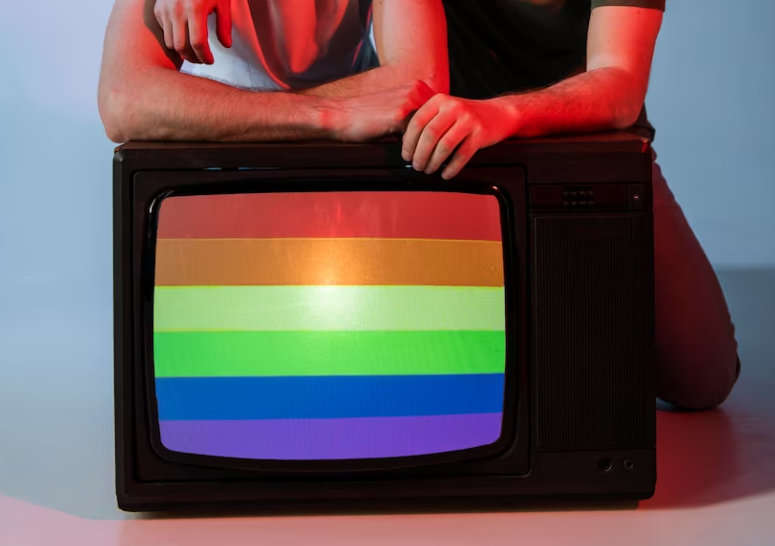The dangers of queerbaiting
Understanding the importance of recognizing queerbaiting can help prevent the invasion of privacy of individuals and the 2SLGBTQI+ community.
“Queerbaiting” is a danger at the centre of the 2SLGBTQI+ community. Queerbaiting refers to the use of the 2SLGBTQI+ community for vested interests and marketing intent. But, this is not the definitive definition and needs to be redefined. The disorientation caused by queerbaiting recently led actor Kit Connor to forcibly come out via Twitter. Connor is not the only one to have faced queerbaiting accusations. Many other celebrities like Harry Styles, Rita Ora, and others have been subjected to the unescapable public eye’s accusations as well. While queerbaiting is a legitimate issue for the 2SLGBTQI+ community, over time, it has transformed into an excuse for the invasion of privacy.
Beyond celebrities being accused of queerbaiting, queerbaiting can be used by corporations, companies, and groups, for personal monetary benefit. For instance, many television shows and movies highlight 2SLGBTQI+ characters through trailers and advertising to put out an image of support for the 2SLGBTQI+ community. With that, people identify with the characters, or find the film supportive of the 2SLGBTQI+ community, and tune into these programs only to find that the characters, relationships, and the 2SLGBTQI+ support that was advertised, was just a mere few moments in the whole work.
Not only is this harmful for the 2SLGBTQI+ community, but many companies, like AT&T and CVS Health in the US are ingenuine with their support and fund homophobic campaigns, politicians, and movements on the sidelines—like Chick-fil-A’s prior connections and donations to anti-2SLGBTQI+ Christian organizations. While Chick-fil-A’s affiliation with such organizations is an accurate representation of queerbaiting, many instances are not. They are simply misunderstood.
In Connor’s case, we can clearly see how harmful queerbaiting is for those accused. Watching Heartstopper (2022), a love story between two young queer boys, the audience accused Connor of queerbaiting by “projecting himself in a queer way.” Not only did the public accuse Connor, but also forced him to temporarily quit social media when he was photographed holding hands with a co-star, Maia Reficco, which led to extreme scrutiny and speculations of Connor’s sexuality.
We often discuss queerbaiting as people acting queer for additional attention or interest. Queerbaiting in media is when an 2SLGBTQI+ angle is added to maneuver attention and increase target audience; like, the show Supernatural (2005-2020) and Teen Wolf (2011-2017), which have been criticized for queerbaiting with bisexual characters, and especially in the case of Teen Wolf, misrepresenting bisexual people and their relationships. In this case, the plot of Heartstopper is based on a queer love story, meaning that being queer is an essential part of the story and not an added marketing technique.
Queerbaiting is strongly related to media representation; wherein, many people prefer 2SLGBTQI+ actors playing 2SLGBTQI+ characters. This comes from a need to balance the opportunities between heterosexual versus homosexual actors. In attempts to identify 2SLGBTQI+ celebrities in media, campaigns, and the like, many forget the right to privacy and depth of self-discovery that these stars have.
Privacy and self-discovery are intertwined. Self-discovery is a timely, complex, and emotional process that any individual would want to journey in private. In the exploration stage, privacy is essential to maintain our authenticity. With this authenticity, when we do come to terms with our identity, or even, like celebrities, choose to share our lives in public, we stay true to ourselves. Behind the silver screen, actors are real people with qualities and feelings; like us, they prefer to keep personal aspects of their life—their relationships, identity, and more—private.
In the hopes of protecting the 2SLGBTQI+ community from queerbaiting, unfortunately, the countereffect of violating celebrities’, especially young celebrities’, privacy has emerged. While the opposing reaction to queerbaiting is valid, it is misdirected—it is a danger for 2SLGBTQI+ individuals, and the 2SLGBTQI+ community as a whole. Accurate recognition of queerbaiting aids in maintaining the dignity of the community and preventing its capitalization. The inability to identify a problem will only result in misguided, larger, and combined anger.

